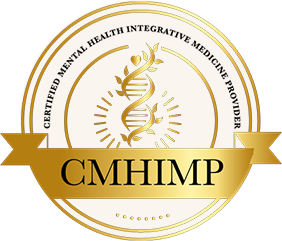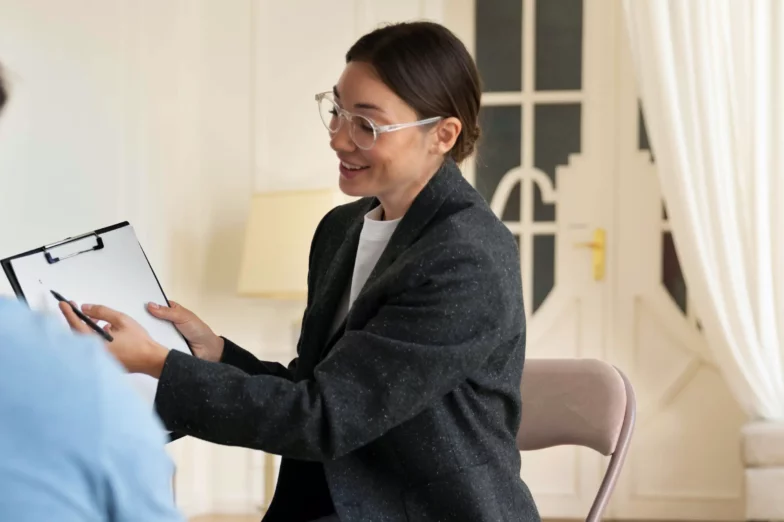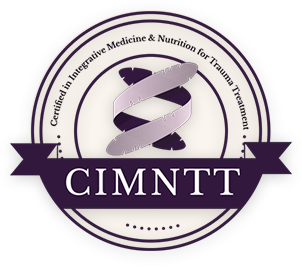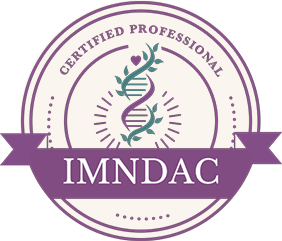Certificación
Exploring Acupuncture and Moxibustion as Supportive Approaches for Managing Tinnitus
Tinnitus affects many people and can deeply interfere with daily life. While conventional treatments often provide only limited relief, traditional therapies such as acupuncture, moxibustion, and auricular acupressure show promising results. Recent studies indicate that these approaches may help reduce tinnitus intensity, support hearing, and ease the emotional distress that often accompanies the condition.
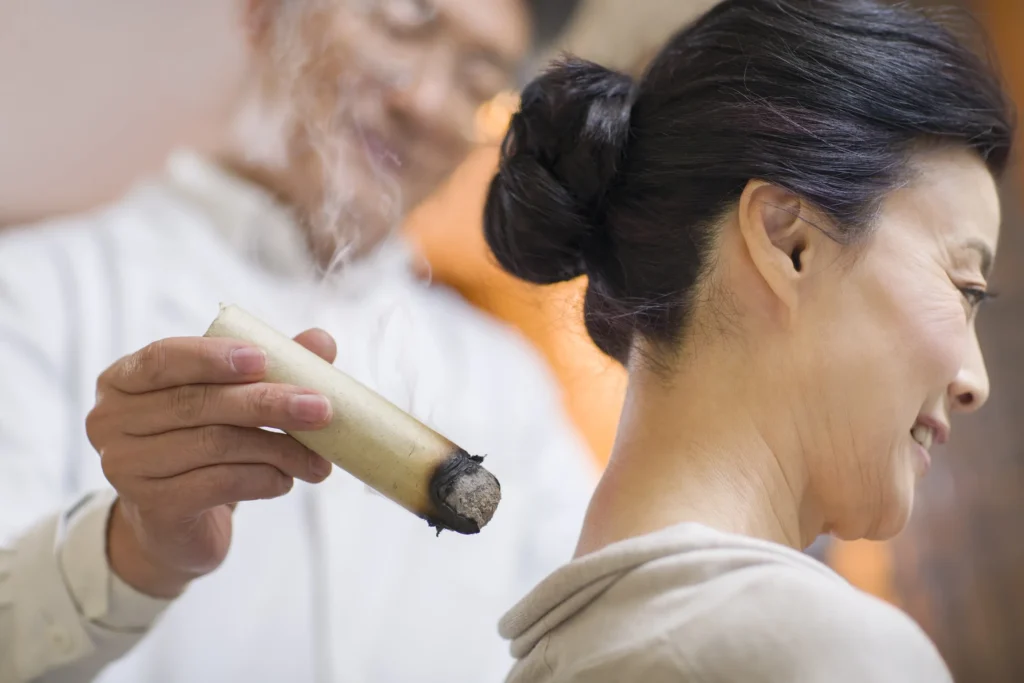
Tinnitus—the perception of ringing, buzzing, or pulsing without an external sound—it's more than an ear condition. For many clients, it disrupts sleep, concentration, and emotional well-being. When conventional treatments don’t fully relieve symptoms, traditional therapies based on Traditional Chinese Medicine (TCM), such as acupuncture, moxibustion, and auricular acupressure, offer meaningful additional options. Emerging research is beginning to map how these practices can reduce the intensity of tinnitus, support hearing, and ease the anxiety and stress that often accompany this condition.
In TCM, tinnitus is understood through patterns that influence the auditory pathways or through blockages along meridians that pass through the ear, so the treatment aims to shift the internal pattern that creates the sound. Acupuncture around the ear and related channels, gentle moxibustion, and auricular acupressure are commonly used in this context, each helping regulate circulation, modulate the nervous system, and restore balance to the internal environment.
Let’s look at what recent studies have found about how these traditional approaches can support our clients living with this condition:
The first study, conducted in several clinics across Hong Kong, compared two approaches in older adults with subjective tinnitus: electroacupuncture alone, and electroacupuncture combined with warm needling. Both treatments led to clear improvements—less ringing, less distress—when compared with no treatment at all. The progress continued weeks after the sessions ended. No serious side effects were reported, suggesting that this can be a safe and effective option.
The second paper, a large meta-analysis of 34 randomized controlled trials with more than 3,000 participants, looked at acupuncture and moxibustion for primary tinnitus. Compared with standard medical care, these therapies reduced tinnitus handicap scores and improved overall response rates. Participants also showed lower levels of anxiety and depression. The authors called the evidence encouraging but emphasized that more consistent, higher-quality research is still needed to confirm the results long term.
The third article, a systematic review and meta-analysis, focused on scalp acupuncture, which targets points along the head’s meridians believed to influence the auditory system. Across 20 studies involving roughly 1,400 people, scalp acupuncture outperformed control treatments in reducing tinnitus severity and improving overall effectiveness. Still, the researchers noted that differences in technique and study design make it hard to draw firm conclusions. They called for standardized protocols and more rigorous trials to strengthen the evidence.
The fourth study looked at auricular acupressure—using auricular point acupressure patches made from Vaccaria seeds on the ear’s reflex points—as an add-on to standard therapy for noise-induced tinnitus. After four weeks, patients who received both conventional treatment and acupressure reported greater improvements in tinnitus loudness, hearing thresholds, and overall quality-of-life scores than those who received medication alone.
The fifth article, a network meta-analysis pooling data from more than 2,500 cases, compared different forms of acupuncture. Treatments that combined warm acupuncture, acupoint injection, and electroacupuncture produced the best outcomes, followed closely by acupuncture paired with moxibustion or standard medical therapy.
Tags: tinnitus, acupuncture, moxibustion, electroacupuncture, auricular acupressure, scalp acupuncture, complementary medicine, traditional Chinese medicine, hearing disability, hearing loss
Interested in Learning More?
- Course(s): Mental Health Disorders
- Course(s): Effective Strategies to Balance Mood and Enhance Cognitive Function
- Book(s): The Brainbow Blueprint: A Clinical Guide to Integrative Medicine and Nutrition for Mental Well-Being
Research Glossary
Research has its own vocabulary. To help you decipher research, I created a Glossary to ease the way. You may access it here: Research Glossary
Referenced Research Publications
Complementary therapies in medicine
2025, mayo 13
DOI: 10.1016/j.ctim.2025.103191
Efficacy and safety of electroacupuncture and electroacupuncture combined with warm needling for subjective tinnitus: A multicenter, three-arm randomized controlled trial
Abstract
Objective: To evaluate the clinical efficacy and safety of electroacupuncture (EA) and electroacupuncture combined with warm needling (EAWN) on reducing tinnitus loudness and tinnitus-related distress among older adults.
Methods: This multicenter, assessor-blinded, parallel-group, randomized clinical trial was conducted from December 2022 to April 2024 at three out-patient clinics in Hong Kong. Ninety eligible participants aged 50-70 years with subjective tinnitus for 0.5-24 months were equally randomized to EA, EAWN, or waitlist groups. Both treatment groups received two standardized treatment sessions per week for 5 weeks. The waitlist group received no treatment during the study period. The outcome measures were numeric rating scale (NRS) scores for tinnitus loudness, Tinnitus Handicap Inventory (THI) scores, and safety outcomes. Assessments were conducted at baseline, weeks 5 and 10.
Results: Both EA and EAWN groups showed significantly greater reductions in NRS scores for tinnitus loudness than did the waitlist group at weeks 5 (mean difference [95 % confidence interval]; EA: -1.91 [-2.79 to -1.03]; P < 0.001; EAWN: -1.81 [-2.68 to -0.94]; P < 0.001) and 10 (EA: -2.03 [-2.95 to -1.11]; P < 0.001; EAWN: -1.98 [-2.92 to -1.04]; P < 0.001). Improvements in total THI scores were also greater in the intervention groups at weeks 5 (P < 0.01) and 10 (P < 0.001). The two intervention groups showed no significant differences. No serious adverse events were reported. Conclusion: Both EA and EAWN therapies could be effective and safe treatments for subjective tinnitus in older adults.
Reference
Ho, L. F., Guo, Y., Chen, L., Fung, H., Mak, W. Y., Cheung, S. C., Tsang, P. H., Chen, M., Chan, K. L., Zhang, H., Chang, W. T., Ng, B. F., & Lin, Z. X. (2025). Efficacy and safety of electroacupuncture and electroacupuncture combined with warm needling for subjective tinnitus: A multicenter, three-arm randomized controlled trial. Complementary therapies in medicine, 91, 103191. https://doi.org/10.1016/j.ctim.2025.103191
American journal of otolaryngology
2023, febrero 26
DOI: 10.1016/j.amjoto.2023.103821
Efficacy and safety of acupuncture and moxibustion for primary tinnitus: A systematic review and meta-analysis
Abstract
Background: Tinnitus is a common otological symptom that can seriously affect a patient's quality of life, and effective therapies are still lacking. A large number of studies have found that compared with traditional therapy, acupuncture and moxibustion treatment are beneficial for the treatment of primary tinnitus, although current evidence remains inconclusive. This systematic review and meta-analysis of randomized controlled trials (RCTs) aimed to evaluate the efficacy and safety of acupuncture and moxibustion for primary tinnitus.
Methods: We conducted a comprehensive literature review in multiple databases from inception through December 2021, including PubMed, Medline, Ovid, Embase, Science Direct, Chinese National Knowledge Infrastructure (CNKI), Wanfang Data, Chinese Biomedical Literature (CBM) and VIP Database. The database search was supplemented by subsequent periodic scrutiny of unpublished and ongoing RCTs from the Cochrane Central Register of Controlled Trials (CENTRAL) and the WHO International Clinical Trials Registry (ICTRP). We included RCTs that compared acupuncture and moxibustion with pharmacological therapies, oxygen or physical therapies, or no treatment, for treating primary tinnitus. The main outcome measures were Tinnitus Handicap Inventory (THI) and efficacy rate; the secondary outcome measures were Tinnitus Evaluation Questionnaire (TEQ), Pure Tone Average (PTA), Visual Analogue Scale (VAS), Hamilton Anxiety Scale (HAMA), Hamilton Depression Scale (HAMD) and adverse events. Data accumulation and synthesis included meta-analysis, subgroup analysis, publication bias, risk-of-bias assessment, sensitivity analysis, and adverse events. The Grading of Recommendations, Assessment, Development, and Evaluation (GRADE) system was used to grade the evidence quality.
Results: We included 34 RCTs involving 3086 patients. Results indicated that compared with the controls, acupuncture and moxibustion resulted in significantly lower scores on the THI, achieved a significantly higher efficacy rate, reduced scores on TEQ, PTA, VAS, HAMA and HAMD. The meta-analysis revealed that acupuncture and moxibustion have a good safety profile in the treatment of primary tinnitus.
Conclusion: The results showed that acupuncture and moxibustion for primary tinnitus yielded the greatest decrease in tinnitus severity and improvement in quality of life. Due to the low quality of GRADE evidence grade, the considerable heterogeneity among trials for several data syntheses, more high-quality studies with large sample sizes and longer follow-up periods are urgently needed.
Reference
Wu, Q., Wang, J., Han, D., Hu, H., & Gao, H. (2023). Efficacy and safety of acupuncture and moxibustion for primary tinnitus: A systematic review and meta-analysis. American journal of otolaryngology, 44(3), 103821. https://doi.org/10.1016/j.amjoto.2023.103821
Complementary therapies in medicine
2025, enero 17
DOI: 10.1016/j.ctim.2025.103129
The clinical efficacy of scalp acupuncture for tinnitus: A systematic review and meta-analysis
Abstract
Background: No single treatment is considered to be universally effective for tinnitus. Scalp acupuncture has been explored as a potential treatment.
Objective: This systematic review and meta-analysis aim to evaluate the clinical efficacy of scalp acupuncture in treating tinnitus.
Methods: A comprehensive search of relevant databases was conducted to identify randomized controlled trials comparing scalp acupuncture with a control treatment for tinnitus.The clinical efficacy rate and reduction in tinnitus severity were assessed using relative risk (RR) and standardized mean difference (SMD), respectively. Sensitivity analyses was performed to investigate sources of heterogeneity.
Results: A total of 20 research studies,with 1430 participants,were included.The systematic review and meta-analysis revealed that the scalp acupuncture groups had a significantly higher clinical effective rate compared to the control groups (RR=1.25, 95 % CI 1.16-1.35, p < 0.00001),with low heterogeneity(p = 0.27,I2=20 %).The scalp acupuncture groups and scalp acupuncture plus auxiliary acupoints groups had greater reduction in tinnitus severity compared to the control groups(SMD=-0.76,95 %CI:-1.02,-0.51,p < 0.00001;SMD:-0.93,95 %CI:-1.52,-0.33,p = 0.002, respectively),with a moderate heterogeneity(p = 0.005,I2=62 %) and a significant heterogeneity (p < 0.00001,I2=86 %) observed due to differences in study design, sample characteristics, and intervention protocols.Sensitivity analysis confirmed the stability of the results.The summary table generated through GRADEpro indicated that the certainty of evidence ranged from moderate to low. Conclusions: Scalp acupuncture has demonstrated promising efficacy in the treatment of tinnitus compared to traditional acupuncture or pharmacotherapy. However, the current evidence is limited due to potential biases and heterogeneity across studies.Future studies should standardize protocols, ensure higher methodological rigor, and explore long-term effects to validate the findings further. The review was registered with PROSPERO (CRD42024537806):Jiadi Chen, Ruizhi Jing.Analysis of clinical effect of scalp acupuncture on tinnitus. Available from: https://www.crd.york.ac.uk/prospero/display_record.php?ID=CRD42024537806.
Reference
Chen, J., & Jing, R. (2025). The clinical efficacy of scalp acupuncture for tinnitus: A systematic review and meta-analysis. Complementary therapies in medicine, 88, 103129. https://doi.org/10.1016/j.ctim.2025.103129
Noise & health
2025, febrero 28
DOI: 10.4103/nah.nah_123_24
Effect of Auricular Point Acupressure Therapy on Noise-Induced Tinnitus: A Retrospective Analysis
Abstract
Objective: This retrospective analysis aimed to assess the effectiveness of auricular point acupressure therapy as an adjunct to conventional treatment for noise-induced tinnitus.
Methods: The study retrospectively analyzed the data of patients with noise-induced tinnitus admitted to the Sandun branch of Zhejiang Hospital from June 2020 to June 2023 and included 100 patients for analysis. Based on the different treatments, the patients were divided into a conventional therapy group (methylcobalamin tablets for 4 weeks, n = 52) and an auricular point acupressure therapy group (methylcobalamin tablets and auricular point acupressure therapy for 4 weeks, n = 48). The baseline characteristics, tinnitus loudness, hearing thresholds, Tinnitus Handicap Inventory (THI), Tinnitus Evaluation Questionnaire (TEQ), and clinical efficacy were assessed before and after treatment.
Results: After 4 weeks of treatment, compared with the patients in the conventional therapy group, those in the auricular point acupressure therapy group had an advantage in tinnitus loudness, hearing thresholds, and THI and TEQ scores, and the differences were statistically significant (P < 0.05). The clinical effectiveness in the auricular point acupressure therapy group was significantly higher than that in the conventional therapy group (P < 0.05). Conclusion: Auricular point acupressure therapy has a substantial effect on the treatment of noise-induced tinnitus. It is superior to conventional therapy in reducing tinnitus loudness and hearing thresholds. As a noninvasive therapy, auricular point acupressure has the potential to be an adjuvant therapy for noise-induced tinnitus.
Reference
Chen, Q., Lv, H., & Qi, J. (2025). Effect of Auricular Point Acupressure Therapy on Noise-Induced Tinnitus: A Retrospective Analysis. Noise & health, 27(124), 51–57. https://doi.org/10.4103/nah.nah_123_24
MEDICINE (BALTIMORE)
2023, septiembre 29
DOI: 10.1097/MD.0000000000035019
Network meta-analysis of acupuncture for tinnitus
Abstract
Objective: To provide evidence for medical management of tinnitus based on an assessment of the evidence concerning the effectiveness of acupuncture as a treatment for tinnitus using network meta-analysis (NMA).
Methods: We conducted a systematic literature review by searching 8 national and international databases (inception to February 2023) for randomized controlled trials (RCTs) for tinnitus. Only RCTs that recruited participants aged over 18 and diagnosed with tinnitus, and that evaluated acupuncture or acupuncture in combination with conventional western medical therapy were included. We used response rate and tinnitus handicap inventory (THI) to examine efficacy. We conducted NMA with random effects, and the rate ratio or mean difference with its 95% credible interval was calculated. In addition, we ranked all treatments via their SUCRA and assessed the quality of evidence according to the GRADE criteria.
Results: A total of 2575 patients were included in the study. The main findings of the current NMA were that acupoint injection combined with warm acupuncture was the most effective for response rate, followed by warm acupuncture and acupoint injection combined with western medical treatment. Acupuncture combined with western medical treatment was the most effective for THI, followed by electroacupuncture combined with warm acupuncture and acupuncture combined with moxibustion.
Conclusion: Acupuncture seems to be a better trend treatment for tinnitus. Further rigorous RCT studies that include direct comparisons for different acupuncture-related treatments are encouraged to provide the most promising evidence for patients with tinnitus.
Protocol registration: CRD42023398745.
Reference
Ji, L., Zhang, H., Wang, L., Yin, Z., Cen, J., & Guo, Y. (2023). Network meta-analysis of acupuncture for tinnitus. Medicine, 102(39), e35019. https://doi.org/10.1097/MD.0000000000035019


